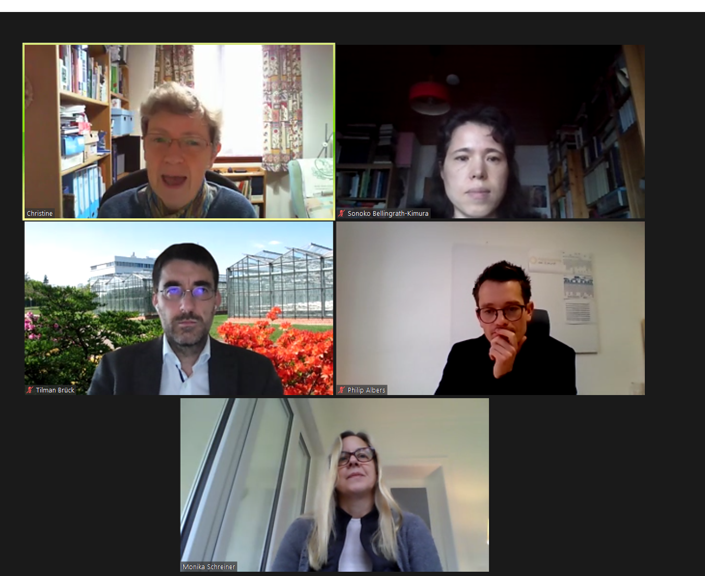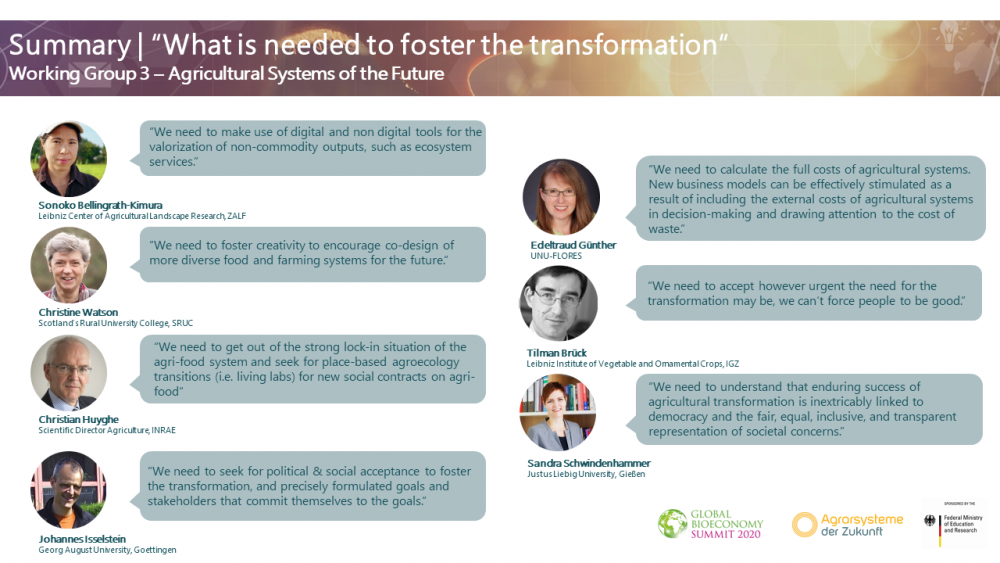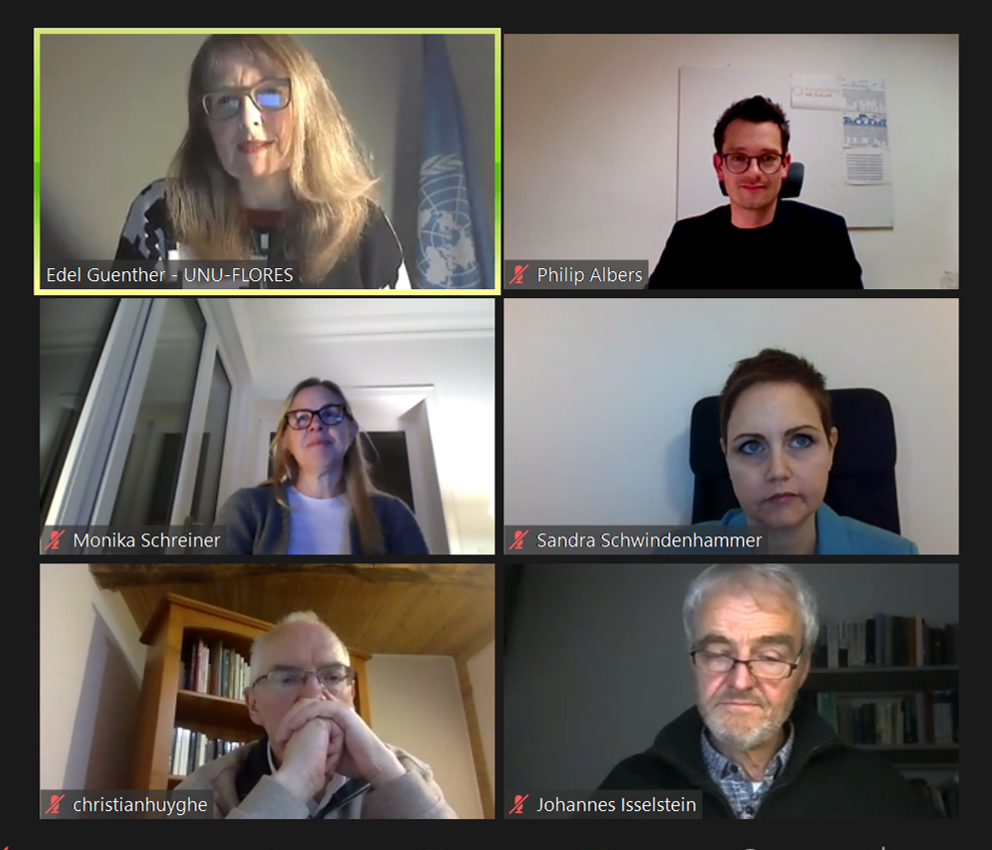The first part of the workshop "What is needed to foster transformation in agriculture?" was introduced by Prof. Sonoko Bellingrath-Kimura from the Leibniz-Centre of Agricultural Landscape Research (ZALF) and coordinator of the AdZ consortium DAKIS. She gave an insight into the agricultural landscape of the future. This vision considers the closing of nutrient cycles in future agricultural systems as well as taking ecosystem services and the preservation of biodiversity into account in any decision making.
In her subsequent presentation, Prof. Christine Watson (Scotland's Rural College, SRUC) also advocated diversification of agricultural systems and used practical examples to illustrate the potential of intermediate crops and perennial plants. In the following panel discussion Prof. Tilman Brück (IGZ) added the urban perspective of agricultural production, which is the focus of the project food4future. The socio-economist also made it clear that above all, comprehensive legal framework conditions for climate protection and also for safe food production in new forms are needed and that consumers as a whole play a key role in the transformation process. A recurring motive in the panelists' argumentation was also that better exchange, better communication, and collaborative, holistic and creative approaches are needed for the sustainable transformation of agricultural systems.



